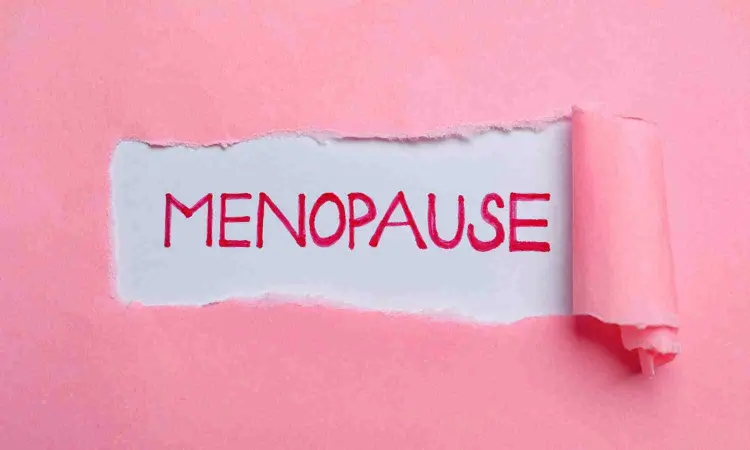- Home
- Medical news & Guidelines
- Anesthesiology
- Cardiology and CTVS
- Critical Care
- Dentistry
- Dermatology
- Diabetes and Endocrinology
- ENT
- Gastroenterology
- Medicine
- Nephrology
- Neurology
- Obstretics-Gynaecology
- Oncology
- Ophthalmology
- Orthopaedics
- Pediatrics-Neonatology
- Psychiatry
- Pulmonology
- Radiology
- Surgery
- Urology
- Laboratory Medicine
- Diet
- Nursing
- Paramedical
- Physiotherapy
- Health news
- Fact Check
- Bone Health Fact Check
- Brain Health Fact Check
- Cancer Related Fact Check
- Child Care Fact Check
- Dental and oral health fact check
- Diabetes and metabolic health fact check
- Diet and Nutrition Fact Check
- Eye and ENT Care Fact Check
- Fitness fact check
- Gut health fact check
- Heart health fact check
- Kidney health fact check
- Medical education fact check
- Men's health fact check
- Respiratory fact check
- Skin and hair care fact check
- Vaccine and Immunization fact check
- Women's health fact check
- AYUSH
- State News
- Andaman and Nicobar Islands
- Andhra Pradesh
- Arunachal Pradesh
- Assam
- Bihar
- Chandigarh
- Chattisgarh
- Dadra and Nagar Haveli
- Daman and Diu
- Delhi
- Goa
- Gujarat
- Haryana
- Himachal Pradesh
- Jammu & Kashmir
- Jharkhand
- Karnataka
- Kerala
- Ladakh
- Lakshadweep
- Madhya Pradesh
- Maharashtra
- Manipur
- Meghalaya
- Mizoram
- Nagaland
- Odisha
- Puducherry
- Punjab
- Rajasthan
- Sikkim
- Tamil Nadu
- Telangana
- Tripura
- Uttar Pradesh
- Uttrakhand
- West Bengal
- Medical Education
- Industry
Low consumption of animal products and oil tied to reduced hot flashes in postmenopausal women: Study

A low-fat vegan diet with soybean supplementation has proven effective in decreasing both body weight and hot flashes in postmenopausal women. Another study, the Women’s Health Initiative, found that increasing whole grains, fruits, and vegetables while lowering fat intake led to reduced hot flashes, especially in individuals who lost over 10% of their body weight. Recent secondary analysis aimed to assess the association between different plant-based diet indices and changes in hot flashes experienced by postmenopausal women. The study participants were randomly assigned to either a low-fat vegan diet supplemented with soybeans (n=42) or a control group (n=42) for 12 weeks. The researchers calculated three plant-based dietary indices: the plant-based diet index (PDI), the healthful plant-based diet index (hPDI), and the unhealthful plant-based diet index (uPDI). They found that all three scores increased in the vegan group compared to no change in the control group. The effect sizes were: - PDI: +9.8 (95% CI +5.8 to +13.8, p<0.001) - hPDI: +10.9 (95% CI +6.4 to +15.3, p<0.001) - uPDI: +3.6 (95% CI +0.5 to +6.6, p=0.02)
Correlation with Changes in Body Weight
The changes in all three scores were negatively correlated with changes in body weight. Importantly, the changes in PDI and uPDI were also negatively associated with changes in severe hot flashes, and these associations remained significant after adjusting for changes in body mass index. The researchers conclude that minimizing the consumption of animal products and vegetable oil may be an effective strategy to reduce hot flashes in postmenopausal women. They also suggest that the categorization of plant foods as "healthful" or "unhealthful" may be unwarranted in this context, as both the "healthy" and "unhealthy" plant-based indices were inversely associated with weight changes and vasomotor symptoms.
Insights from Findings on Low-Fat Vegan Diet
These findings provide valuable insights into the potential benefits of a low-fat vegan diet, supplemented with soybeans, for managing postmenopausal hot flashes. The study highlights the importance of considering overall dietary patterns, rather than just individual food groups, when evaluating the impact of plant-based diets on health outcomes.
Key Points
1. This secondary analysis aimed to assess the association between different plant-based diet indices and changes in hot flashes experienced by postmenopausal women.
2. The study participants were randomly assigned to either a low-fat vegan diet supplemented with soybeans (n=42) or a control group (n=42) for 12 weeks.
3. The researchers calculated three plant-based dietary indices: the plant-based diet index (PDI), the healthful plant-based diet index (hPDI), and the unhealthful plant-based diet index (uPDI). All three scores increased in the vegan group compared to no change in the control group.
4. The changes in all three scores were negatively correlated with changes in body weight. The changes in PDI and uPDI were also negatively associated with changes in severe hot flashes, even after adjusting for changes in BMI.
5. The researchers conclude that minimizing the consumption of animal products and vegetable oil may be an effective strategy to reduce hot flashes in postmenopausal women. They also suggest that the categorization of plant foods as "healthful" or "unhealthful" may be unwarranted in this context.
6. The findings provide valuable insights into the potential benefits of a low-fat vegan diet, supplemented with soybeans, for managing postmenopausal hot flashes, and highlight the importance of considering overall dietary patterns rather than just individual food groups.
Reference –
Brennan, H., Znayenko-Miller, T., Sutton, M. et al. Diet quality, body weight, and postmenopausal hot flashes: a secondary analysis of a randomized clinical trial. BMC Women's Health 24, 620 (2024).https://doi.org/10.1186/s12905-024-03467-4
Dr Kamal Kant Kohli-MBBS, DTCD- a chest specialist with more than 30 years of practice and a flair for writing clinical articles, Dr Kamal Kant Kohli joined Medical Dialogues as a Chief Editor of Medical News. Besides writing articles, as an editor, he proofreads and verifies all the medical content published on Medical Dialogues including those coming from journals, studies,medical conferences,guidelines etc. Email: drkohli@medicaldialogues.in. Contact no. 011-43720751


